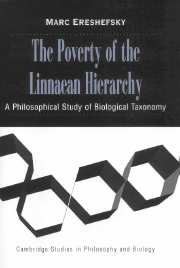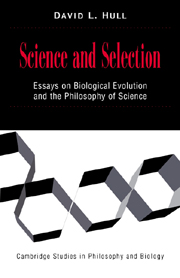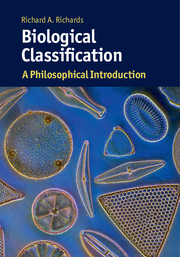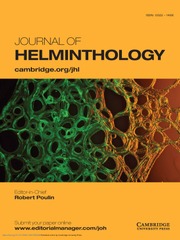The Poverty of the Linnaean Hierarchy
The question of whether biologists should continue to use the Linnaean hierarchy has been a hotly debated issue. Invented before the introduction of evolutionary theory, Linnaeus's system of classifying organisms is based on outdated theoretical assumptions, and is thought to be unable to provide accurate biological classifications. Marc Ereshefsky argues that biologists should abandon the Linnaean system and adopt an alternative that is more in line with evolutionary theory. He traces the evolution of the Linnaean hierarchy from its introduction to the present. He illustrates how the continued use of this system hampers our ability to classify the organic world, and then goes on to make specific recommendations for a post-Linnaean method of classification. Accessible to a wide range of readers by providing introductory chapters to the philosophy of classification and the taxonomy of biology, the book will interest both scholars and students of biology and the philosophy of science.
- The question of whether biologists should continue using the Linnaean hierarchy is a hotly debated issue
- Introductory chapters to biological taxonomy and the philosophy of classification
- Accessible to a wide range of readers
Reviews & endorsements
"Linnaean classification is pre-Darwinian, yet evolutionary biologists continue to use it to describe life's diversity. In this clearly written and incisive book, Ereshefsky shows that this makes no sense. His message isn't just that the Linnaean system should be junked; in addition, Ereshefsky constructs a better system to take its place. This book is of practical importance to biologists, but its analysis of the relationship between theories and classification schemes will also be of compelling interest to philosophers of science." Elliott Sober, University of Wisconsin
"[I]nteresting and thought provokingoI recommend Ereshefskyas book to anyone curious about the issues that taxonomists are currently debating. His radical proposals, like any revolutionary ideas, will no doubt be met with strong resistance." Science
"Overall, this book will appeal to systematists who wish to keep pattern and process closely interwoven." NATURE, Feb. 2002
"This book is of practical importance to biologists and philosophers of science.... Will do much to encourage open discussion in this important subject area." Southeastern Naturalist
Product details
November 2000Hardback
9780521781701
328 pages
229 × 152 × 22 mm
0.65kg
23 b/w illus.
Available
Table of Contents
- Preface
- Introduction
- Part I. The Historical Turn:
- 1. The philosophy of classification
- 2. A primer of biological taxonomy
- 3. History and classification
- Part II. The Multiplicity of Nature:
- 4. Species pluralism
- 5. How to be a discerning pluralist
- Part III. Hierarchies and Nomenclature:
- 6. The evolution of the Linnaean hierarchy
- 7. Post-Linnaean taxonomy
- 8. The future of biological nomenclature
- Notes
- References
- Index.






